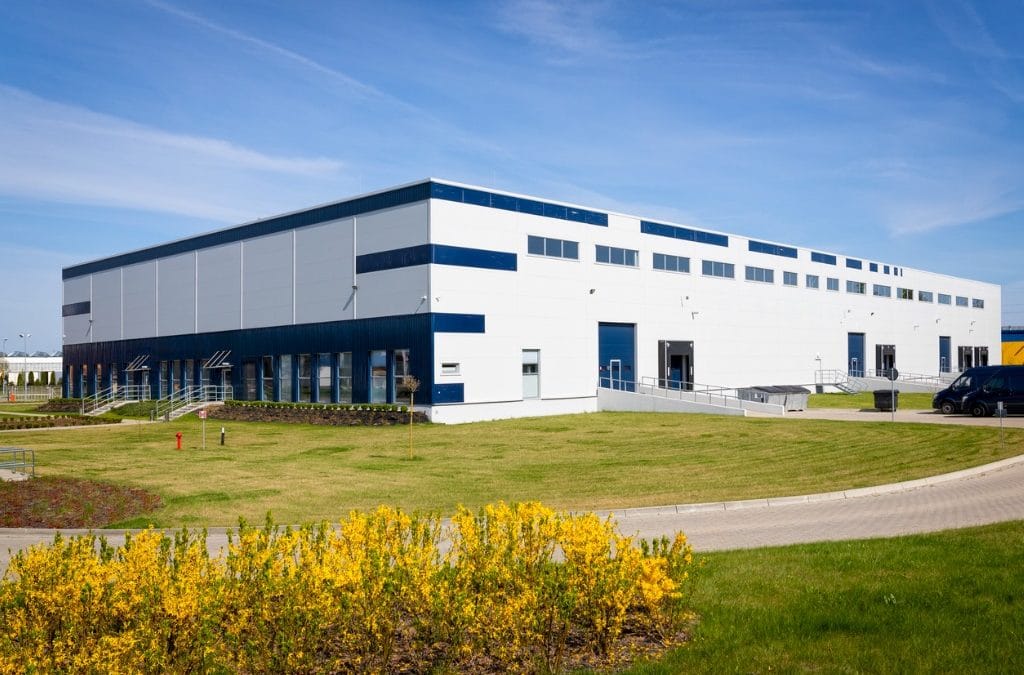With the growing need for various types of warehouses, it’s critical that businesses select the one that best suits their operations. There are warehouse options for many types of businesses, and in this article, we will guide you through some of the most commonly used types of warehouses. Continue reading below to learn more about the different types of warehouses, what they are used for, and how they can benefit your business.
If you’re warehouse hunting or have recently purchased a warehouse for your business and want to ensure that it improves your business operations, contact BILT Industries today to learn how our state-of-the-art industrial shelving solutions make your life more manageable.
What Are the Different Types of Warehouses?
Choosing the right warehouse to suit your business’s needs is vital. The right warehouse will help you store inventory more effectively, improve business operations, and keep workers safe. Here’s a quick overview of ten different types of warehouses, their uses, and the advantages each provides.
Public Warehouses
Unlike other warehouses, government agencies own public warehouses and rent them to private businesses to store goods in exchange for a monthly fee. Both corporate and personal use is permitted in public warehouses, and they are ideal for storing goods for a short period of time. Although not as technologically advanced as other warehouses, public warehouses are a cost-effective and accessible option, especially for startups and small businesses.
Private Warehouses
Private warehouses are privately owned by wholesalers, distributors, or manufacturers, as well as online marketplaces. Although private warehouses are generally more expensive than public warehouses, they are an excellent alternative for small businesses looking for a substantial, long-term strategic presence in a vital region.
Bonded Warehouses
Bonded warehouses allow businesses to store imported goods before paying customs duties. When corporations rent warehouse space from the government, they receive bonds to ensure that they will not lose money when their products are released. Bonded warehouses can store products for long periods of time and have a strong reputation for being secure and safe. Furthermore, corporations that store goods in bonded warehouses are exempt from paying customs until they discharge their goods.
Smart Warehouses
In smart warehouses, storage, fulfillment, and management processes are all automated. Automation can range from management software to A.I. that handles operations such as packing, weighing, transporting, and storing goods. A smart warehouse is a quality option for businesses looking for a warehouse to fulfill orders with little to no human error.
Consolidated Warehouses
Consolidated warehouses are a type of warehouse that collects small shipments from many suppliers and consolidates them into larger shipments before distributing them to customers. The only caveat is that all shipments must be sent to the same location. Consolidated warehouses are another excellent choice for startups and small businesses, as they only require a low initial capital investment and inventory volume.
Government Warehouses
Government warehouses are strategically located to provide storage for relief from natural disasters, such as earthquakes, floods, and droughts. Government warehouses are used to serve the government’s storage needs, but they can also be rented out to the general public for a monthly rate.
Distribution Centers
A distribution center is a storage facility typically designed to meet a company’s specific needs and allow for quicker shipment of large amounts of goods in a short amount of time. Distribution centers are only used for short-term needs and are typically located near transportation centers to move goods quickly and reliably.
Climate-Controlled Warehouses
Climate-controlled warehouses are designed to maintain airflow, temperature ranges, and humidity levels to preserve highly sensitive products. Climate-controlled warehouses are equipped with high-grade HVAC systems, dehumidifiers, programmable thermostats, and heavy-duty insulation to ensure optimum environmental quality. These warehouses are also used to protect valuable paintings and equipment from excessive heat, cold, and dampness.
Hazardous Material Warehouses
Hazardous material warehouses store dangerous and radioactive substances, such as explosives, gases, chemicals, and poisonous compounds. HAZMAT-certified staff wears personal protective equipment (PPE) to reduce exposure to these items. These warehouses are kept out of densely populated regions due to their endangerment to public safety, property, and the environment.
Cross-Dock Warehouses
Cross-dock warehouses are designed to assist with transporting goods from an inbound carrier to an outbound carrier. Instead of being stored, goods arrive at a cross-dock warehouse and travel straight through the sorting process with little to no storage time. Oversized deliveries are divided into groups based on their final destination and shipped using one vehicle.
Industrial Warehouse Shelving from BILT Industries
No matter what type of warehouse you have, you need high-quality industrial shelving to keep up with the demands of your day-to-day operations. For more than 15 years, BILT Industries has been a leader in helping Kansas City businesses realize their potential by providing high-quality industrial warehouse shelving solutions.
We understand the value of warehouse organization, and we remain committed to providing each of our customers with the solutions they need to keep their companies running smoothly. If you’re ready to learn more about how industrial warehouse shelving can drastically improve your daily operations, contact us today to discover how we can help satisfy your company’s needs.

